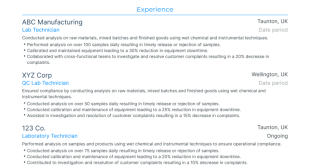Classes You Need To Become A Nurse – Whether you are becoming an APRN or have years of experience as an APRN, understanding the definition of nursing as well as the levels and positions in the field are critical to realizing your full range of career options. Educational and experience background usually corresponds to their education level.
There are a variety of positions between primary nursing and advanced nursing positions. Read on to learn about the level and quality of care.
Classes You Need To Become A Nurse
Certified Nursing Assistants (CNAs) assist patients with activities of daily living and other health care needs under the direct supervision of a registered nurse (RN) or licensed physician (LPN).
How To Become A Nurse
Certified Nursing Assistants must complete a state-approved training program. These programs are typically located at local community colleges, high schools, vocational or technical schools, or local hospitals.
LVN and LPN are interchangeable designations depending on where you work in the United States. California and Texas use the LVN designation, and the rest of the United States uses the LPN.
LPNs and LVNs work in hospitals, nursing homes, and other healthcare facilities, often responsible for basic types of patient care and comfort arrangements. They typically work under the direction of a registered nurse or MD.
To become an LVN/LPN, you need a high school diploma or GED, complete an accredited LVN/LPN course, and pass a national board licensure examination. LPN programs typically include a year of classes and training at a hospital, community college, or technical school. There are also LPN to RN programs where an LPN can return to school and become an ADN RN or BSN RN through an accelerated program.
Study Nursing In Australia: How To Become A Nurse In Australia
Registrants manage hands-on patient care in a variety of settings, including hospitals, physician offices, nursing homes, and other facilities.
Registered nurses work with doctors and other members of the health care team to provide the best treatment options. They also help educate patients and their families about health issues.
To become a registered nurse, you must complete an associate’s degree in nursing (ADN) or a bachelor’s degree in nursing (BSN) and then earn the NCLEX-RN.
An APRN is a master’s degree-prepared RN with a post-master’s certificate or DNP who serves in one of four roles:
Pathway To Nursing
APRNs are licensed through the state board of nursing in which they practice. In many states, APRNs can prescribe and practice independently, while in other states they do so under the supervision of a medical doctor (MD).
Many APRNs also have a DNP, but you can have just one of them. An APRN with a DNP is considered a practicing doctorate.
They can increase their earning potential and advance their careers beyond the bedside by pursuing non-clinical advanced nursing careers.
The Registered Nurse Diploma is another route to registration. Like the ADN, these courses typically take two years to complete and both prepare students to take the NCLEX-RN. The main difference is that the ADN is an undergraduate degree, while the diploma is not. Diploma programs are usually offered in hospitals, but may also be offered in technical or vocational schools.
Do Nurses Need To Go To Medical School?
The ADN is a two-year degree that, in addition to the RN diploma, represents the minimum education required to obtain a license to work as a registered nurse (see next section).
Most registered nurses begin their careers caring for patients directly at the bedside. This experience is often preferred for users looking to advance their careers and ultimately earn a BSN, MSN, APRN, or DNP. However, there are many career paths that registered nurses can take outside of the hospital setting, including case management or cosmetic care.
The BSN is a four-year nursing degree for students who want to become registered nurses (RN) or who currently hold only an associate degree in nursing (ADN). Many people who start their careers as ADNs end up advancing their careers by earning a BSN.
Bachelor’s degree apprenticeships in nursing in a whole hospital setting. For example, cardiology, neurology, pediatrics, labor and delivery, emergency department, and ICU, among others.
Professional Nursing (adn/rn) Programs
They are encouraged to obtain certification in their chosen specialty after gaining at least one or more years of direct care experience. For example, a neuro/traumatologist in the ICU can study and take the Certification in Registered Neuroscience (CNRN). Earning certification in your chosen specialty shows that you are an expert in a certain area of care. Additionally, many institutions will pay more to obtain certification in their specialty.
Both ADN and BSN graduates must pass the NCLEX-RN exam to obtain an RN work permit.
There are many types of master’s degrees in nursing. The Advanced Practice degree prepares registrants for advanced clinical roles. Other types of MSN degrees focus on preparation for non-clinical roles, such as public health or nursing informatics.
The Doctor of Nursing Practice (DNP) is the highest level of nursing education and expertise within the nursing profession. DNPs work in nursing management or direct patient care as an advanced practice registered nurse (APRN). As thought leaders, DNPs also implement health policy and influence health care outcomes.
What Classes Do You Take In Nursing School? Here’s What To Expect
DNP education requires three to six years of study, depending on your current level of nursing education. Most DNP programs require you to have a master’s degree in nursing, although some programs start at the BSN level and require more years of study.
In the coming years, nurses will have more career opportunities than ever before. National employment of registered nurses is expected to grow 6 percent between 2021 and 2031. This is partly due to an increased emphasis on preventive care, higher rates of chronic diseases such as obesity and type 2 diabetes, and an aging baby boomer population.
Improving your education has never been easier, especially with the rise of online learning. Some educational opportunities you may want to consider include RN to BSN, BSN to MSN, and MSN to DNP programs.
Sarah Jividen, RN, BSN, is a trained neuro/trauma and emergency medical freelance writer/editor. A journalism major, she combines her love of writing with her passion for high-level patient care. Sarah is the founder of Healthwriting Solutions, LLC, specializing in writing on health topics, including evidence-based health news, education, and health and wellness trends. She lives in Northern California with her husband and two children. Taking care of children is a noble cause. Just like the nursing profession. When you combine the two, you’ll find exceptional individuals trained as pediatric nurses who have the privilege of helping children grow from infancy through adolescence into healthy young adults. In this article, we’ll explore what the job entails, the opportunities available, and the steps to becoming a pediatric nurse practitioner.
How To Become A Pediatric Nurse
What is a pediatric nurse? ((In fact, “Pediatric Nurse Job Description: Primary Responsibilities and Qualifications,” https://www.indeed.com/hire/job-description/pediatric-nurse?hl=en&co=US)) Pediatric nurses provide Comprehensive medical care for children, monitoring their development rate.
Children’s nurses are professionals who can address the health needs of children in an empathetic manner. They communicate with children and families while overseeing their health care. Through advanced specialized training in graduate nursing programs, registered nurses (RNs) can tailor their nursing skills to focus on the unique needs of children.
Pediatric nurses work closely with physicians to manage multiple levels of primary care, such as taking patient medical histories, assisting with well-child exams, administering vaccinations, and treating illnesses. As children’s physical and cognitive abilities continue to develop, nurses must adapt their approach and health care plans to meet the needs of each child at his or her level.
Pediatric nurses also play a key role in educating parents on best practices for their child’s overall health. Information such as nutritional guidelines and warning signs of childhood illness can help parents make healthy choices for their children at home. Nurses can also serve as a source of support for parents, listening and providing advice about behavioral issues and developmental milestones. They can refer families to resources that would benefit their children, such as food assistance programs for food-insecure families.
Different Types Of Nurses And What They Do
Public health education can also be an important part of this role. Pediatric nurses often attend health fairs and visit nonprofits and schools to conduct physical exams, provide immunizations, and educate the community about prevention strategies.
To be effective, pediatric nurses must be able to talk and interact with children on their level, balancing comfort and authority. For example, if a young patient starts screaming and crying because she is afraid of an injection, the pediatric nurse may need to calm the situation with a soothing voice or a quick distraction. Health anxiety in children is not uncommon (Juli Fraga, “How to help kids overcome their fear of doctors and injections,” NPR, December 29, 2018: https://www.npr.org/sections/health-shots/ 2018/ 12/ 29/677505443/how-to-help-kids-overcome-ofear-of-doctors-and-shots)) Therefore, knowledge about child development is extremely valuable for pediatric nurses.
Of course, children’s nurses must also be well-versed in the potential effects of medications, illnesses, and injuries on children. Understand the risks children may face for their own reasons
What classes do i need to become a nurse, what classes do you need to become a nurse, classes to take to become a nurse, classes to become a registered nurse, online classes to become a nurse, what classes you need to take to become a nurse, classes you need to become a nurse, classes you need to take to become a nurse, what classes you need to become a nurse, classes needed to become a nurse, what classes do you take to become a nurse, classes to become a nurse



